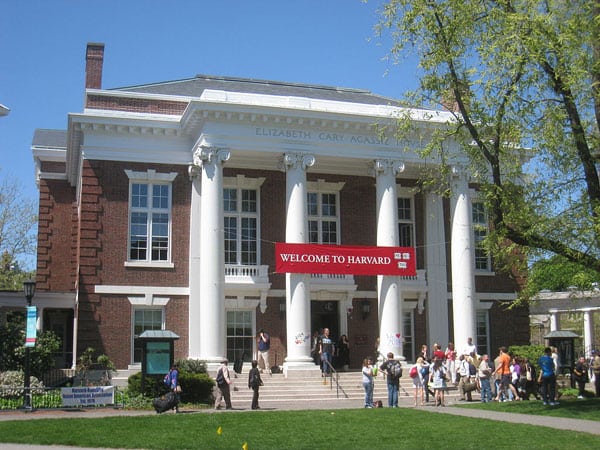
September 19, 2018; Boston Globe
It is hard to sympathize with Harvard, but should it be compelled to pay taxes each year to the state government in Massachusetts? Under a new proposal from Jay Gonzalez, the Democratic Party’s gubernatorial nominee, the university could face an annual tax bill of close to $600 million.
Harvard, with its $36 billion endowment, could certainly pay that bill. Fresh off of a capital campaign that raised $9.6 billion, exceeding the school’s fundraising goal by a cool $3.1 billion, it is not surprising that Massachusetts gubernatorial candidate Jay Gonzales would see in Harvard a potential revenue source to, as reporter Joshua Miller puts it in the Boston Globe, “upgrade the state’s beleaguered transportation infrastructure and infuse more money into early childhood, K-12, and public higher education—all without raising taxes on any resident.”
Gonzalez’s plan, Miller explains, “would levy a 1.6 percent tax on endowments of any private, nonprofit college or university with a fund of more than $1 billion,” based on the average value of the endowment over the previous five years. If this tax were collected in 2018 based on 2013–2017 endowment values, more than half of that billion ($563 million) would have come from Harvard, another 20 percent or so ($210 million) from the Massachusetts Institute of Technology (MIT), and the rest from the seven remaining schools—Boston College, Boston University, Williams College, Amherst College, Tufts University, Smith College, and Wellesley College.
The richest colleges and universities “have accumulated huge wealth as a result of exemption from taxation,” Gonzalez says. “We need them to step up and help out and help make sure we’ve got an economy that’s working for everyone.”
For their part, universities, albeit inadvertently, seem intent on encouraging these kinds of proposals. For example, in opposing the Gonzalez proposal, Richard Doherty, who heads the Association of Independent Colleges and Universities in Massachusetts, says, “I’m very disappointed that that’s the tack he’s taking, particularly given how important colleges and universities are to the economy of Massachusetts.”
But economic importance can’t be a rationale for tax exemption. If it were, then Los Angeles should stop taxing Hollywood, San Francisco should stop taxing tech firms, and northern Virginia should stop taxing defense contractors—all important to the economy. Notice that Doherty fails to even mention the nonprofit educational mission of universities—i.e., the ostensible reason why Harvard and others are exempt from tax. Universities are also silent on the concerns Gonzalez raised regarding shortfalls in early childhood and K-12 education, areas where universities might consider themselves to be important partners.
Sign up for our free newsletters
Subscribe to NPQ's newsletters to have our top stories delivered directly to your inbox.
By signing up, you agree to our privacy policy and terms of use, and to receive messages from NPQ and our partners.
Universities have also helped bring this proposal upon themselves through their resistance to local “payments in lieu of taxes,” better known as PILOTs. With a PILOT, a university (or other nonprofit) agrees to contribute toward city services “in lieu” of the property taxes that they would owe as for-profits. Harvard’s main campus is in Cambridge, but it also owns property in the Allston neighborhood of Boston. The fact that Harvard and other nonprofit universities are shortchanging the city under a PILOT arrangement in which they are asked to contribute less than one-eighth of what they would owe as for-profits is galling—and may have encouraged Gonzalez to float his proposal.
Back in 2002, NPQ wrote that, “A healthy PILOT payment ensures that the local community is not, by virtue of foregone local taxes, subsidizing to an unfair degree the broadly accrued public benefit of educating a student body that comes from and will eventually locate themselves all over the world.” In other words, a PILOT seeks to strike a balance between the nonprofit mission of the institutions and the need for a city to deliver services when many of the benefits the nonprofits provide may leak outside their host community.
Research by Toronto-based urbanist Richard Florida notes that leakage among nonprofit universities can be large. For example, Florida reports, “Less than a quarter of Harvard graduates and only 27 percent of MIT grads end up in greater Boston, compared to roughly half of all graduates from four-year Boston area colleges.”
The case for large nonprofits to contribute to local government is reasonably straightforward, but does the same logic apply at the state level, or at the national level, where Congress enacted new tax requirements on large nonprofits last year? Or should the nonprofit tax exemption free resources from tax to enable nonprofits to achieve their mission goals?
Earlier this year, NPQ reported on a national conference of universities organized by Campus Compact in which participating colleges pledged to embrace “our responsibilities as place-based institutions, contributing to the health and strength of our communities—economically, socially, environmentally, educationally, and politically.” But progress on achieving this vision has been limited so far.
Increasingly, for universities, the choice would appear to be theirs. Either they find a way to embrace their place-based mission—or government will do this for them.—Steve Dubb













